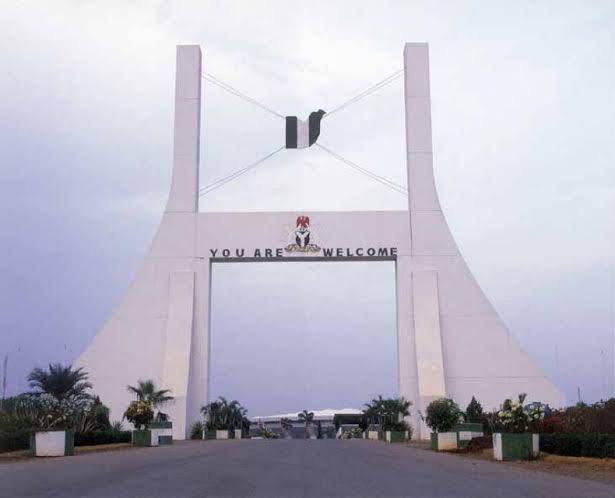The rental market in Abuja, the capital city of Nigeria, has witnessed a staggering surge in prices. Landlords, driven by the need to cover their expenses and maintain their standard of living, have resorted to charging exorbitant rents. A two-bedroom apartment in the outskirts of Abuja, such as Karu, Nyanya, Lugbe, Kubwa, and Apo, now commands an average rent of between 800,000 to 1.5 million Naira per year. However, these figures pale in comparison to the sky-high rates demanded in posh neighborhoods like Asokoro, Maitama, Garki, Wuse, Jabi, and Utako.
One might wonder, why such exorbitant rents? The answer lies partly in the prevailing inflationary environment currently gripping Nigeria. As the nation grapples with economic challenges, landlords find themselves compelled to increase their rental prices to meet their own growing financial obligations.
For most landlords, rental income is their primary source of revenue, which they rely on to cover their expenses and maintain their livelihoods. However, when their rental income no longer suffices to meet their immediate needs, they are left with no choice but to raise the rent. It becomes a vicious cycle that ultimately burdens those who are already financially strained.
The implications of the rising cost of rent are far-reaching. Families and individuals who are already struggling to make ends meet find themselves trapped in a cycle of poverty. Affordable housing becomes a distant dream, forcing many to settle for substandard living conditions or resort to overcrowded and inadequate accommodation.
To address this pressing issue, head of Marketing and Communication, Millard Fuller Foundation, John Olugbemi in a chat with LEADERSHIP Weekend said the demand for housing in Abuja far exceeds the available supply, leading to inflated rental prices.
“The increasing cost of rent in Abuja is leaving the less privileged struggling to find affordable housing,” said Olugbemi.
He lamented that the rental market in Abuja has witnessed a significant surge in prices. He said landlords, faced with rising inflation and mounting expenses, have resorted to charging exorbitant rents.
Olugbemi cited examples of two-bedroom apartments in the outskirts of Abuja, such as Karu, Nyanya, Lugbe, Kubwa, and Apo, commanding an average rent between 800,000 to 1.5 million Naira per year. The situation is even more severe in upscale neighborhoods like Asokoro, Maitama, Garki, Wuse, Jabi, and Utako.
“With rental income being the primary source of revenue for most landlords, they often rely on it to cover their expenses and maintain their livelihoods. However, as the rate of inflation continues to rise, many landlords find themselves unable to meet their immediate needs with their existing income. Consequently, they resort to increasing rents, further burdening those who are already financially strained,” he said.
Olugbemi said the implications of the escalating rent prices are wide-ranging.
“Families and individuals who are struggling to make ends meet find themselves caught in a cycle of poverty, unable to afford decent housing. This dire situation pushes some to settle for substandard living conditions or overcrowded accommodations,” he said.
In response to this pressing issue, he said the Millard Fuller Foundation is actively working to provide affordable housing solutions for the less privileged.
“The foundation constructs low-cost houses and implements innovative financing models to bridge the gap between the wealthy and the marginalised.
“The rising cost of rent in Abuja has created an urgent need for collaboration among various stakeholders, including government bodies, private enterprises, and non-profit organisations. Together, they must find sustainable solutions to ensure that housing remains a fundamental human right, regardless of socioeconomic status,” he added.
In a chat with us, a worker who was recently transferred by his firm from Kaduna to Abuja, Alqasim Kabir, expressed his deep concern over the soaring rent prices in the capital city.
Kabir, currently residing in PW, Kubwa, shared his personal experience, highlighting the stark contrast between rental fees in Abuja and Kaduna.
Having been transferred to Abuja at the beginning of the year, Kabir lamented the significant difference in rent between the two cities.
In Kaduna, he said the amount he pays for accommodation would provide him with a comfortable three-bedroom house.
“However, in Abuja, the same budget falls woefully short of meeting his family’s needs, forcing them to continue living in Kaduna.
“I normally go back to Kaduna on weekends to see my family, but now with the expensive transportation costs, my entire income goes towards commuting,” Kabir shared with a heavy heart.
He said the rising rent prices coupled with the financial strain of commuting have left him and his family struggling to make ends meet in Abuja.
While he remains committed to his work in Abuja, Kabir acknowledges that his family’s comfort and economic security are better served by residing in Kaduna.
Kabir’s situation echoes the plight of many workers who find themselves caught in the grip of the increasing cost of living. The disparity between incomes and rent prices in Abuja has become a pressing issue, exacerbating the challenges faced by families striving for a comfortable life.
The burden of expensive rent and transportation costs has compelled Kabir to rethink his living arrangements. With a limited income, he is forced to prioritize his family’s well-being and financial stability.
As workers like Kabir struggle to cope with the rising cost of rent, Desmond Fater, a civil servant working in Abuja, sheds light on the increasing cost of rent and its effects on both tenants and landlords.
Fater emphasised that the rapid expansion of the city, with numerous ongoing construction projects and the emergence of new areas, contributes to the escalating rent fees each passing year.
He also highlighted how landlords are impacted by the rising cost of living, as construction materials become more expensive due to new housing styles and interior designs.
When asked about the personal impact of rent increases, Fater candidly shares his experience. “Yes, it has affected me,” he acknowledged.
Several years ago, he said he resided in Byazhine, Kubwa, but after getting married, he had to relocate to Maraba in search of an affordable and comfortable three-bedroom house, which he found for approximately 800,000 Naira per year. However, due to traffic congestion on his way to work in the Central Area, Fater said he and his wife decided to move to Lifecamp at the end of last year. He said their new two-bedroom flat comes at a hefty cost of around 2 million Naira annually.
Fater, however, remains optimistic and expresses his prayers for better conditions in the country. Like many others grappling with the rising cost of living, he said he hopes for improvements that would alleviate the burden on citizens.
In an interview with LEADERSHIP Weekend, a student at Nasarawa State University residing in Dutse, Abuja, Enodiana Anita Osariemen shed light on the challenges faced by individuals due to the current economic situation.
Osariemen expressed how the high cost of living has forced her to manage her spending carefully, particularly due to the soaring rental prices.
Like many others, Osariemen said she has experienced the direct impact of the economic situation on transportation options since the inauguration of the new government.
She noted that previously, getting around was more convenient and flexible. However, with the changing circumstances, transportation has become increasingly challenging, causing difficulties for students and residents alike.
Considering the rising rent prices, Osariemen contemplated moving back to Keffi, where she could find a student apartment for 250,000 Naira. However, she said her landlord made a persuasive plea for her to stay, promising to renovate her current apartment in exchange for continued rent payments.
This interaction highlighted the significant impact of the economic situation on both tenants and landlords, emphasising that the effects are felt throughout the housing market.
Osariemen’s insights serve as a poignant reminder that the economic situation not only affects individuals’ daily lives but also has broader implications for the real estate sector. As tenants grapple with high rent costs, landlords face their own challenges, striving to retain tenants and maintain their properties amidst the evolving economic landscape.




